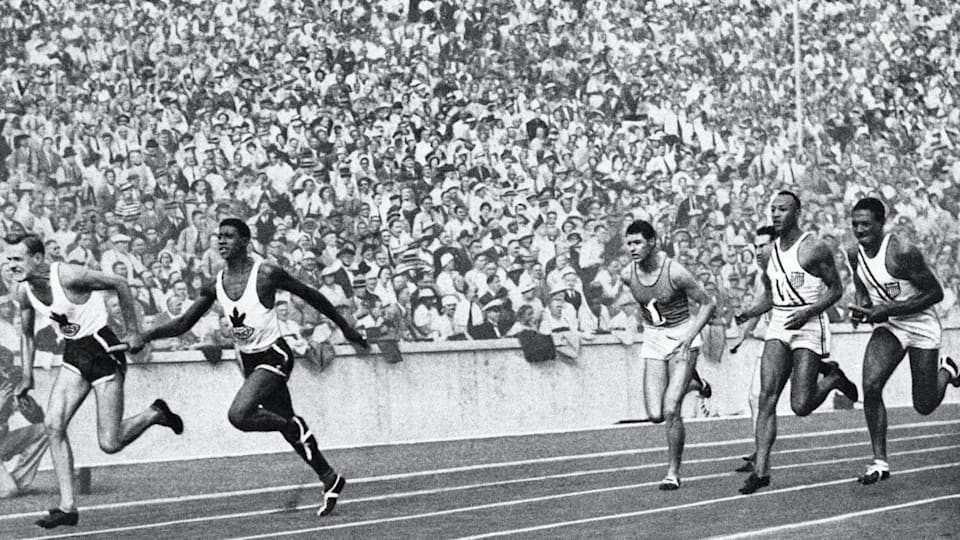Jesse Owens immortalized by his fourth gold medal
Controversially added to the team at the last minute, Jesse Owens lined up for the 4x100m relay with a chance to add an incredible fourth gold medal to his collection. Under typically difficult circumstances, what followed was just as typically extraordinary.

As glorious on the track as it was controversial off it, Jesse Owens’ fourth gold medal of the Berlin 1936 Olympic Games will never be forgotten.
Despite clearly being two of the best four sprinters in the US team, neither Owens nor 100m silver medallist Ralph Metcalfe were expected to take part in the 4x100m. The pair had not been members of the pre-Games relay training squads and it was thought that Sam Stoller and Marty Glickman would line up alongside stalwarts Frank Wykoff and Foy Draper.
The US sprint coach Lawson Robertson is quoted by noted US Olympic historian David Wallechinsky in The Complete Book of the Olympics, as confirming to reporters after Owens’s 200m triumph that the three-time gold medallist had “had enough glory and collected enough gold medals and oak trees to last him a while. We want to give the other boys the chance to enjoy the ceremonie protocolaire".
Four days later, on the morning of competition, Stoller and Glickman were dropped with Owens and Metcalfe taking their place.
No official explanation has ever been confirmed, but with Stoller and Glickman the only Jewish athletes on the USA team, it was widely reported that the change of personnel was made in response to the prevailing political situation in Germany.
The quartet that did take to the track did their utmost to dispel this controversy with a series of scintillating performances. Wykoff had won gold in the 4x100m at both the Amsterdam 1928 and Los Angeles 1932 Games, while the 5ft8in Draper was famed for his unbreakable competitive will. Together with Metcalfe and the unstoppable Owens, it was a formidable team.
The foursome equalled the world record in the heats, finishing in 40 seconds flat. They were more than a second clear of their nearest rivals, Italy.
In the final Owens again led the team off, giving the USA a huge lead. Metcalfe stretched it before Draper held off an attempted surge from the Italians and Wykoff finished things off in style, sealing his third successive 4x100m Olympic gold medal.
It was an extraordinary performance. The world record time of 39.8 seconds, a mark that stood unbroken for 20 years, all the more remarkable considering the emotions and furore surrounding the build-up.
Once again Owens and his teammates had responded to challenging circumstances with graceful, dignified and utterly compelling human endeavour.
The Italian team finished a full 1.3 seconds behind the USA with Germany taking bronze.
Owens had done it. In his 10 starts on the track the 22-year-old had crossed the line first on all 10 occasions. In the long jump he had responded to the greatest sporting test he faced at the Games by leaping to an Olympic record.
Four events, four gold medals. And all achieved amid a difficult atmosphere he could not control. Jesse Owens is without a doubt one of the greatest Olympians of all time.
